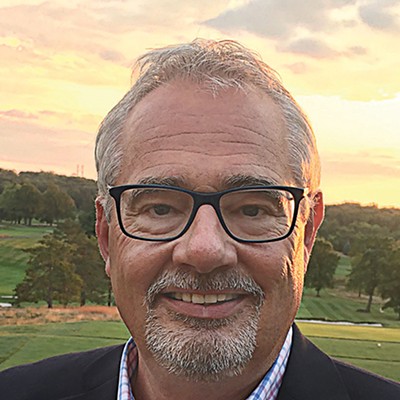One of the finest city councilmen ever to serve Oklahoma City died on Nov. 13. Mark Schwartz strived tirelessly from 1987 to 1998 to prepare our city for the 21st century. We are all rewarded by his efforts.
As with any accomplished elected official, Mark's work was both seen and unseen. Among his best-known efforts was his campaign for the voters' passage, in 1989, of the public safety sales tax. The tax was earmarked for fire and police and the money it raises continues to benefit us to this day.
It was Schwartz who pioneered the curbside recycling bins to which we have all become accustomed. He pushed for a detention center for juvenile curfew law violators and a nighttime traffic court. He fought for competitive bidding for municipal design, bond and consulting contracts. Mark was a strong advocate for firefighters, continually urging upgrades in manpower and equipment.
Behind the scenes, he was master of the deal. During his tenure " unlike these days " the city council tended to develop factions. The council had long suffered from geopolitical differences between the north side and the south. Mark was excellent at bridging that gap and finding common ground whenever possible. Always, he was an advocate for his constituents.
During the aftermath of the Murrah building bombing, Mark spent every night of the search and rescue effort at the scene, doing what he could to bolster the morale of those who dug in the rubble. No fanfare, no publicity " he just did it. When President Clinton came to share in our grief, it was Mark who organized the caravan that brought his entourage from Tinker into the city.
Schwartz represented Oklahoma City especially well on the national stage. In 1997, he was elected president of the National League of Cities. He became acquainted with the Clinton administration, and in 1998, then-Secretary of Energy Bill Richardson tapped him for the job of Deputy General Counsel for Energy Policy. Mark moved to Washington, D.C., where, after his tenure at the Department of Energy, he practiced law, often representing Oklahoma interests at the capital.
He returned to Oklahoma City in 2006 and, at my invitation, joined me in the practice of municipal law. My relationship with Mark went back to the 1970s when we were young, reform-minded aspirants for public office. As we put together his first campaign in 1987, our mantra was "Let's put a Jew on the horseshoe," and we did. In fact, Mark may have been the first Jew ever elected to City Council. So I was delighted when he came back to town. Then he fell ill with prostate cancer. His companion, Gail Meltzner, saw him through to the end.
What distinguished Mark from so many of his contemporaries was his sense of communal faith. He was a true believer, utterly without cynicism. He understood that cities are big, unruly beasts, which must be pulled and prodded into the future. Mark was awfully good at that. I'll miss the guy.
Groves is a practicing attorney in Oklahoma City.












